june-top.html
1846 Charles Parnell was born on this day in County Wicklow in 1846. He is one of the most significant figures in Irish history.
He was considered a brilliant politician and was liked and respected by both his British and Irish colleagues in the House of Commons.
Parnell campaigned for an independent Ireland, free from British rule. He acted peacefully using his political skills and didn’t believe that para-military groups using force was the right way to achieve independence for Ireland.
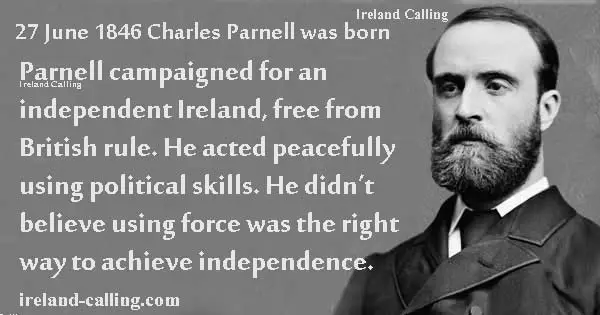
Parnell’s career was destroyed when he openly had a relationship with Kitty O’Shea, the wife of one of his colleagues. Many of Parnell’s followers turned on him, believing the public scandal would discredit their party. Parnell married O’Shea but the stress of his rapid public demise was too much for his health and he died of a heart attack a few months later.
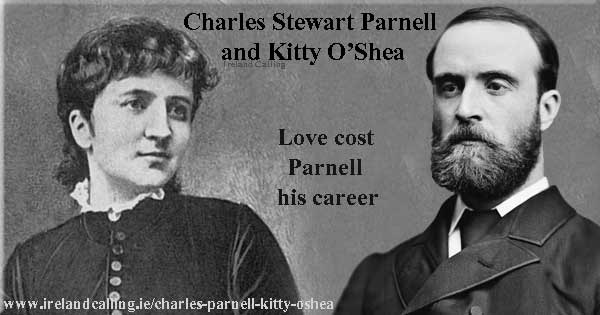 Click here to read more about the love story between Charles Parnell and Kitty O’Shea
Click here to read more about the love story between Charles Parnell and Kitty O’Shea
Click here to read about the love stories of other leading Irish figures
* * *
1864 Charles Joly was born on this day in 1864 in Co Offaly. He was a leading mathematician and astronomer in the late 19th and early 20th century. He published several essays on astronomy and worked closely with the distinguished Irish mathematician Sir William Rowan Hamilton. The two men collaborated to write two volumes of Elements of Quaternions, which explained complex mathematical systems.
Joly was made Andrews Professor of Astronomy at Trinity College (named in honour of 18th century Provost of the college, Francis Andrews) and also held the prestigious post of Royal Astronomer of Ireland for several years.
Click here to read about more great Irish scientists
* * *
1918 Marie Kean was born in Dublin on this day in 1918. She was a successful stage and television actress, recognisable to Irish people as Mrs. Kennedy in the Radio Éireann serial drama, The Kennedys of Castleross. Kean also won a Jacob’s awards for her role as Winnie in the Samuel Beckett play Happy Days produced by RTÉ in 1968.
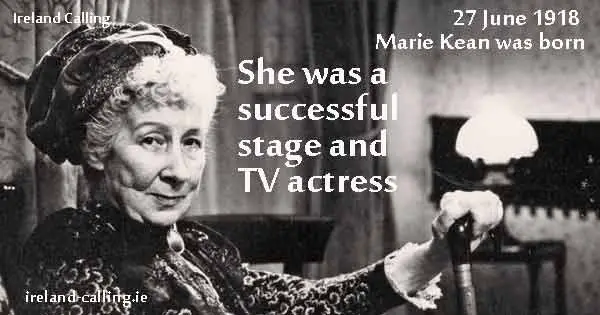
Click here to read about more Irish actors
* * *
1919 On this day in 1919, the Irish Status published its first issue. It was a newspaper edited by Warre B. Wells that supported the Irish Dominion League, a political party that was in favour of Ireland’s status as a dominion within the British Empire.
During this time, many Irish nationalists wanted complete independence from Britain. Just three years earlier, hundreds had died fighting in the Easter Rising. After the rebels surrendered to the British’s superior military resources, many of the leaders were executed which turned much of the public opinion in favour of the Irish nationalists.
The Irish War of Independence followed, with the IRA led by Michael Collins, carrying out quick and sporadic attacks on the British troops before rapidly disappearing back into anonymity so as not to engage in a full-on battle against the better equipped British army.
However, the Irish Status believed that Ireland’s position as a dominion of the British Empire, with the right to govern itself was a significant step forward, and should not be compromised with violent attacks on the British.
Despite not appealing to the Irish nationalists, the Irish Status did have its own supporters, including esteemed writers WB Yeats and George Bernard Shaw who both wrote regular columns for the newspaper.
However, despite its high profile writers, the Irish Status was not a stable business and was often in financial trouble. It ran into difficulty when it was sued by a husband and wife team of musicians in 1927. The paper had reviewed a song collection by Maighréad Ni Annagáin and Seamus Clandillon and reported that there was no note of any inspiration from the words or music of the 75 pieces that made up the collection. They accused the composers of being lazy and negligent to the wants of their public.
The composers successfully sued the Irish Status for £2,000, the cost of which forced the newspaper to close for business in 1930.
Click here to read more details about the Easter Rising of 1916
Click here to read more about the life and career of WB Yeats
Click here to read more about the life and career of George Bernard Shaw
Click here to read about more Irish writers
* * *
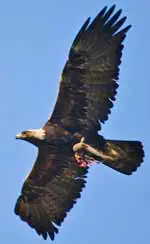 2001 Six Golden Eagle chicks arrived in Donegal on this day in 2001 as part of the Golden Eagle Reintroduction Project. The birds of prey were once the natural predators of Irish skies but became extinct from Ireland in 1912 due to a loss of their natural habitat.
2001 Six Golden Eagle chicks arrived in Donegal on this day in 2001 as part of the Golden Eagle Reintroduction Project. The birds of prey were once the natural predators of Irish skies but became extinct from Ireland in 1912 due to a loss of their natural habitat.
These chicks were taken from nests in Scotland once they were big enough to maintain their own body heat and feed themselves. The chicks were kept in captivity but without any human contact, until they were big enough to be released into the wild. It was hoped that eventually Ireland could have between 50 and 100 breeding pairs of Golden Eagles.
In May 2013, researchers reported that there were at least two pairs of breeding Golden Eagles in Donegal producing a new family of chicks on an annual basis.
* * *
2007 Rotimi Adebari was elected as Mayor of Portlaoise on this day in 2007. He had travelled to Ireland in 2000, as he fled religious persecution in his native Nigeria. He was granted residency after his son was born in Ireland and settled in county Laois. Adebari became a town councillor in 2004, and three years later was elected as Mayor or Portlaoise.
Adebari was the first black man to be elected as a mayor in Ireland. In his acceptance speech, which was attended by personnel from state embassies from Nigeria, the USA and South Africa, Adebari said: “Ireland is not just a country of a thousand welcomes but it is a country of equal opportunity.”
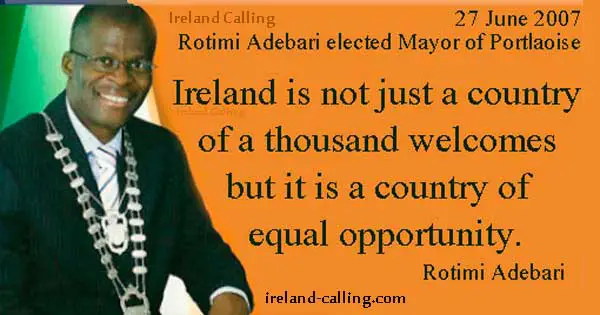
june-bottom.html